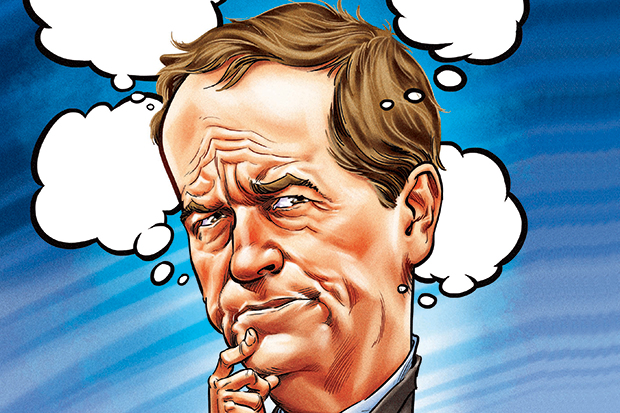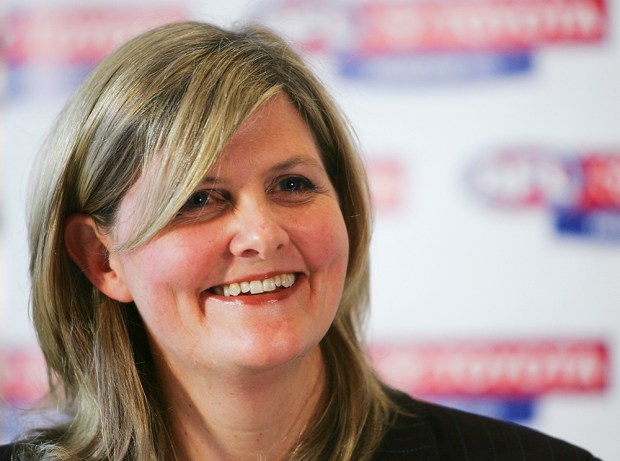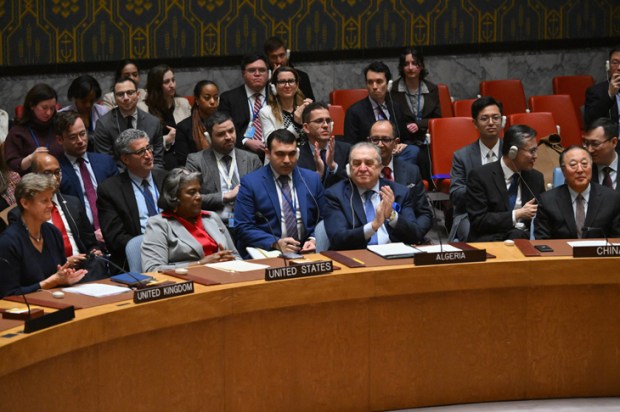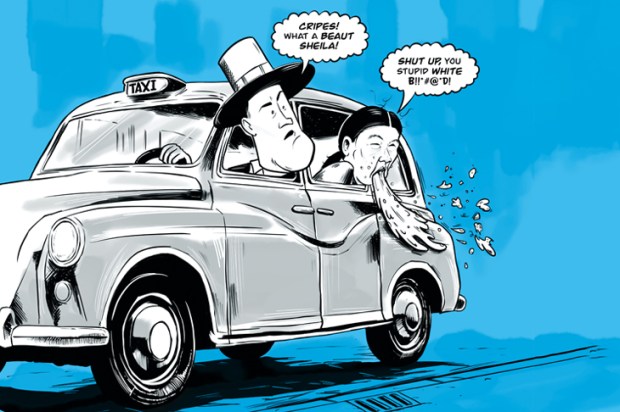‘Today, I say very clearly, Labor will support reform which is fair. Labor will fight reform which is unfair,’ said Bill Shorten over the Easter break. And with that simple formula, the opposition leader laid out the template for the ‘big ideas’ he and his party have promised to reveal to us during the course of this year.
The problem with ‘fairness’ is, of course, that it is a two-dimensional, subjective proposition, which relies on constructing a moral see-saw: take two competing propositions, and add or subtract from both of them until equilibrium is achieved. Alas, we live in a multi-dimensional, inter-connected world, where decisions have far-reaching and often unintended consequences. In reality the quest for ‘fairness’ is at best a fool’s errand, or more likely, a conman’s sleight of hand.
Here’s how it works. It’s only fair that gays should be allowed to marry because straight people can. Tick. It’s only fair that we put a price on carbon because we destroyed the planet. Tick. It’s only fair that we build submarines in south Australia because then south Australian submarine-builders will have jobs. Tick. It’s unfair that universities want to charge more money because students don’t have any money. Tick. It’s unfair to charge people to go to the doctor because then sick people will have to pay more than healthy people. Tick. It’s unfair to criticise Islam because Muslims already have to put up with being blamed for terrorism. Tick. It’s unfair that some people are poorer than others so let’s give them some more welfare. Tick. It’s unfair that some people are richer than others so let’s tax them some more. And so on.
Thus, when asked about his ‘big ideas’ and ‘key policy issues’ Bill Shorten offered gems such as: ‘To have a growing economy, which is fundamental to our future, we’ve got to make sure that we don’t leave people behind.’ Or: ‘Rather than cut pension increases, we should encourage Australians to save for themselves for the future. These are big ideas.’
Only they’re not. They are glaringly obvious emotive concepts that are largely irrelevant to urgently-needed reform in the Hawke/Keating/Howard/Costello mode; reform where tough decisions can have radical, transformative effects upon the economy, thereby increasing genuine opportunity for all. Reform that is stifled the moment you start pitching ‘winners’ against ‘losers’.
Lamentably, too many of these so-called ‘fairness’ equations are in reality dubious non-sequiturs. Shorten again: ‘Our challenge is jobs, you know, and how we make sure that every Australian child can get a job and be properly trained for the future. So I look forward to this year debating issues and on tax reform we’ve made clear that what we think needs to be done is that some of the larger multinationals who aren’t paying their fair share, pay their fair share.’
Taxing multinationals a tad more equates to increased employment for the unskilled, in Shorten’s world view. Big ideas don’t come much smaller.
Renewable Energy Rip-off
Missed in the entire debate surrounding adjustments to the Renewable Energy Target is the rather embarrassing consideration that the entire thing is a massive scam; as big a fraud on the humble Aussie taxpayer as the RET’s deformed cojoined twin the Great Climate Change hoax.
Mandated renewable energy targets are a transfer of large dollops of cash from people who consume electricity to investors in companies that have created products that aren’t commercially viable now or in the foreseeable future (in other words, their costs far exceed any profits that could ever hope to be recouped in an open, honest market.)
Vast sums have been invested by those cynical (or foolish) enough to believe that the fear of climate change has been so firmly established in our collective psyche that governments of all persuasions will carry on artificially skewing the energy market in order to prop up windmills, solar panels, geothermal projects and the like. None of which are remotely economically viable, as traditional energy sources, rather than becoming more expensive as was predicted, have instead become cheaper.
Naturally, those energy sources that could help reduce carbon emissions have perversely been demonised by many of the same people desperately pushing renewables: think nuclear power, coal seam gas, and shale.
Agreement on the RET will be touted as an example of successful bi-partisanship, with all sides of politics patting themselves on the back. In reality, it’s only a win for the investors and a rip-off for the consumer.
Got something to add? Join the discussion and comment below.
Get 10 issues for just $10
Subscribe to The Spectator Australia today for the next 10 magazine issues, plus full online access, for just $10.
You might disagree with half of it, but you’ll enjoy reading all of it. Try your first month for free, then just $2 a week for the remainder of your first year.















Comments
Don't miss out
Join the conversation with other Spectator Australia readers. Subscribe to leave a comment.
SUBSCRIBEAlready a subscriber? Log in